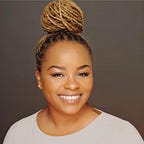Allen Iverson and Other Black Men Who Are The Real MVPs
Here are some welcomed additions to depictions of Black manhood.
Allen Iverson, a former professional point and shooting guard with a career that hailed him as one of the most prolific scorers in NBA history, isn’t known for being big on practice. But it is clear that he painstakingly prepared the speech for his enshrinement in the Naismith Memorial Basketball Hall of Fame.
His heartfelt remarks were a deluge of appreciation. It included family members, childhood and lifetime friends as well as dedicated coaches and the little-known player who taught him his now-signature crossover. It had nods to hip hop legends, daps to his legions of fans, and even sincere acknowledgements to the roles of fake, former friends, as well as to the media whose criticism of him was often less about the game and more about the respectability games he refused to play.
As I watched, I could hardly hold back the tears that flowed — neither, it seemed, could he, especially when thanking his ex-wife and mother of their five kids.
Dressed in all black, with four strategically placed cornrows, replete with neck tattoos on partial view and hand tattoos we glimpsed when he occasionally raised one of them to temporarily rest on his chin, A.I. offered a powerful portrait of Black manhood. And it was a beautiful sight to see. His display of emotion stood in stark contrast to what we expect and praise in Black men and boys away from the cloak of competitive sports.
But when Iverson declared that his baby girl likes to sleep in his bed rather than in her own room, the most progressive audience members and television viewers were probably made uncomfortable — even if only for a split second. It is attributable to the toxic masculinity, which is so common in our experience that sexualizes all touch and affection, including between fathers and their children.
Characterized at best as “weird,” and at worse as a trope in an imagined attack on heteronormativity, toxic masculinity was similarly on full-view in the internet’s vicious responses to Eric Owens’ image of he and son resting side-by-side.
“I’m so troubled by our trouble with it,” writes Dr. Tamura Lomax, co-founder of The Feminist Wire. “That intra-black male intimacy makes us afraid. That a father and son bond suggests gayness. That we problematize our gay kin. That we sexualize birth ties. That we fear touch. That we refuse to believe Black boys need nurture. That we can’t see Black fathers providing it. That we applaud father-son beat down videos for being indicative of real love while laying under your dad’s arm is perverse.”
Similarly, folk will probably question the motivations behind Denver Broncos linebacker Brandon Marshall’s support for San Francisco 49ers quarterback Colin Kaepernick’s taking a knee during the National Anthem.
First, we call on athletes to use their public platforms to fight for causes that affect Black life off the court, out of the ring, and away from the gridiron — and that is exactly what Kaepernick is doing. Second, Marshall, who was Kaepernick’s teammate at the University of Nevada and is his Kappa Alpha Psi Fraternity brother, should be commended for “stanning” for his brother’s just protest.
This is not practice. This is the real world where real issues need real redress. This is the world where just Monday, 22-year-old college student Tiarah Poyau was shot to death in Brooklyn for rebuffing the advances of a black male stranger.
That is why the imagery of non-sexualized care, of non-sexualized gratitude, of non-sexualized touch, and of non-sexualized support, matters. It is what black manhood, black fatherhood, and black brotherhood should look like.
And this is what historically black college and universities must continue to promote in the making of their men.
Iverson, Owens, Kaepernick, and Marshall — and yes, Poyau too — are not unlike our students. Versions of them are promising students at HBCUs, brimming with intelligence, productivity, leadership, and excellence. They are surrounded on all sides by some of the smartest Black men and women in the world, who dedicate themselves to building a better world for Black men, women, and children.
Like other institutions at the nexus of Black culture, our campuses struggle with mixed ideas about respectability and sexuality within the subject of manhood, sometimes deferring to simple, polar expressions of masculinity through displays of athletic prowess or social consciousness. But even with its flaws and shortcomings, black colleges remain an ideal place where Black men can learn to be black men — intellectual, sexual, professional, spiritual, physical creatures who deserve to live without illegitimate criticisms to their manhood.
And the hope is that their time on HBCU campuses yields a more well-rounded version of men who internalize what Black America needs most of them; the learned joy of embracing the struggle of a people, and the genetic fortitude to reverse its damaging effects.
We need HBCUs, because they are capable of building Black men who freely say thank you, who cry, who hold and kiss their kids, who protest, and who “stan” and take a knee for the just protest of their brothers.
We need HBCUs because we need more real MVPs.
